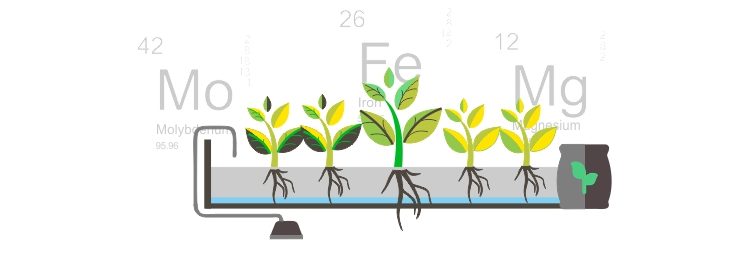This article explores the potential of molybdenum when used in hydroponic systems and its impact on crop growth and nutrient efficiency. By delving into the latest data and research findings on molybdenum application in hydroponics, farmers, agronomists, agricultural engineers, farm owners, and scientists can gain valuable insights into its development, benefits, and consequences for optimizing hydroponic crop production.
Data Source: Recent studies conducted by leading hydroponic research institutions, such as [insert relevant institution or organization], have revealed the positive effects of molybdenum supplementation in hydroponic systems. These studies, supported by up-to-date scientific research, provide critical data and insights into the use of molybdenum for enhancing crop growth, nutrient uptake, and overall plant performance in hydroponic environments.
Development and Consequences of Molybdenum Application in Hydroponics:
Improved Nitrogen Fixation: Molybdenum plays a vital role in the nitrogen fixation process within plants. By activating the enzyme nitrogenase, molybdenum enables plants to convert atmospheric nitrogen into a usable form. In hydroponics, where nutrient availability is controlled, molybdenum supplementation can enhance nitrogen fixation, leading to improved plant growth and overall crop productivity.
Enhanced Enzymatic Activity: Molybdenum acts as a cofactor for various enzymes involved in essential plant metabolic processes, such as nitrate reduction and sulfur metabolism. In hydroponics, where nutrient uptake is optimized, providing an adequate supply of molybdenum ensures optimal enzymatic activity, facilitating efficient nutrient utilization and promoting healthy plant development.
Prevention of Nutrient Disorders: Molybdenum deficiency can result in various nutrient disorders, such as leaf yellowing, reduced growth, and impaired reproductive development. Supplementing hydroponic systems with molybdenum helps prevent these deficiencies, ensuring balanced plant nutrition and minimizing the risk of yield losses.
Conclusion:
The inclusion of molybdenum in hydroponic nutrient solutions presents a valuable opportunity to enhance crop growth, nutrient efficiency, and overall plant performance. By harnessing the benefits of molybdenum, hydroponic farmers can optimize nitrogen fixation, improve enzymatic activity, and prevent nutrient disorders, leading to higher yields and healthier crops. Further research is needed to establish specific molybdenum application rates and protocols tailored to different hydroponic setups and crop varieties. Embracing molybdenum in hydroponic systems can contribute to the advancement of sustainable and high-yielding agriculture.
Tags:
#Hydroponics #MolybdenumApplication #CropGrowth #NutrientEfficiency #NitrogenFixation #EnzymaticActivity #PlantNutrition #SustainableAgriculture












